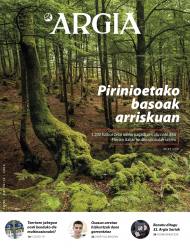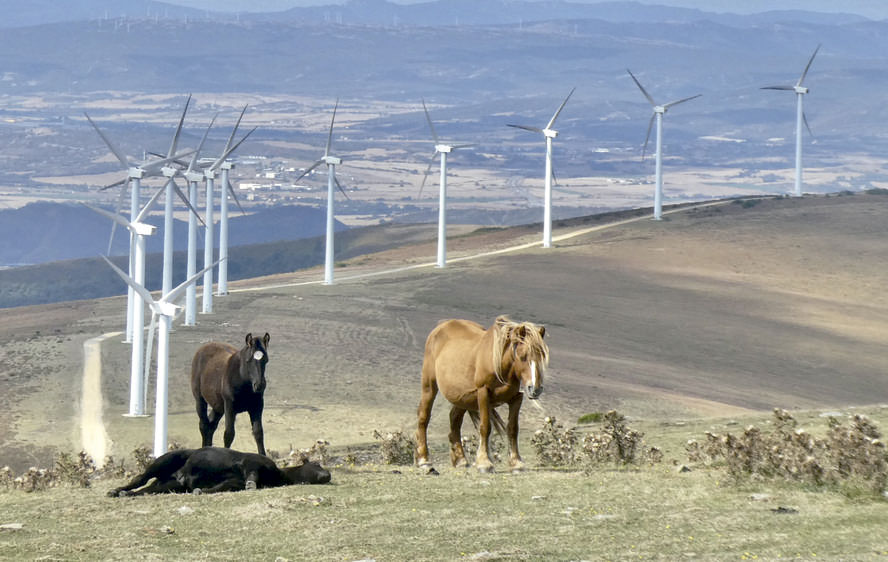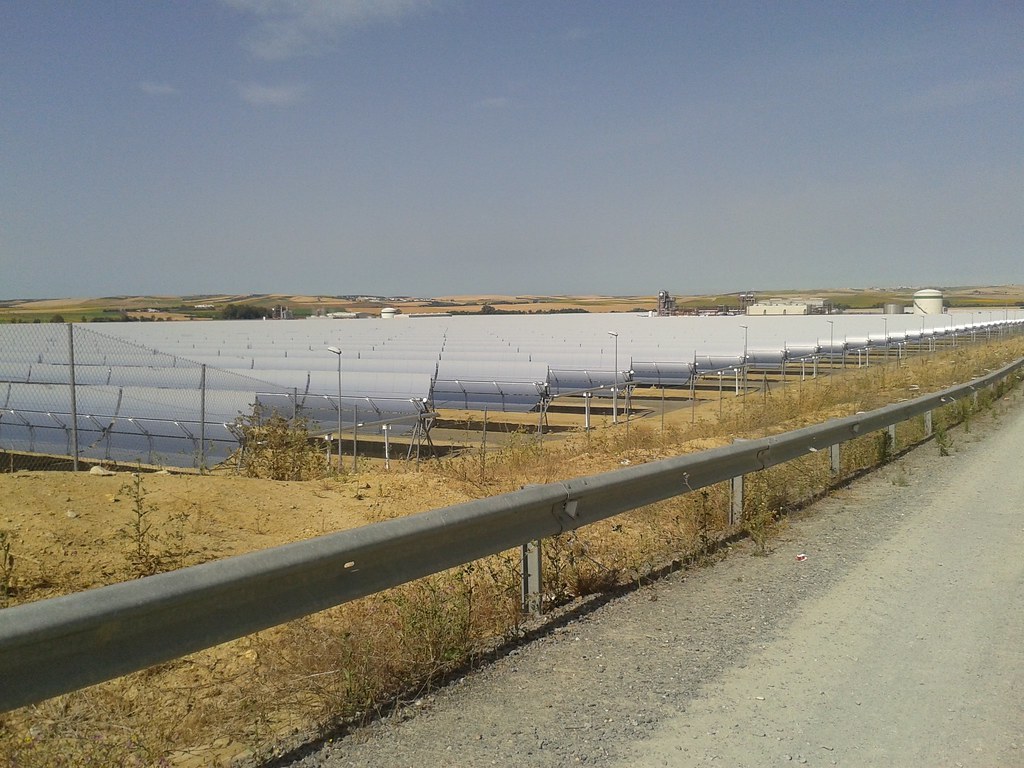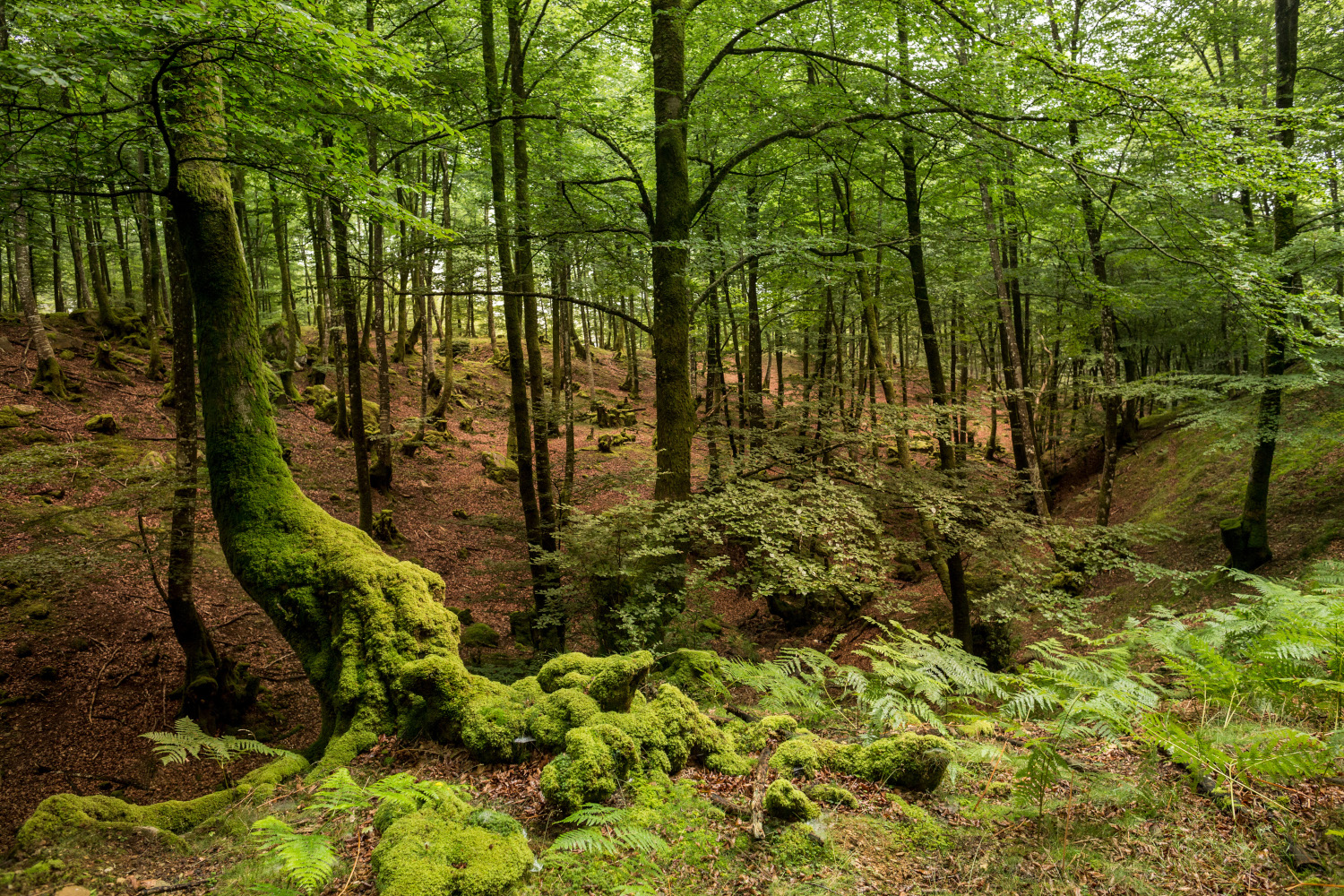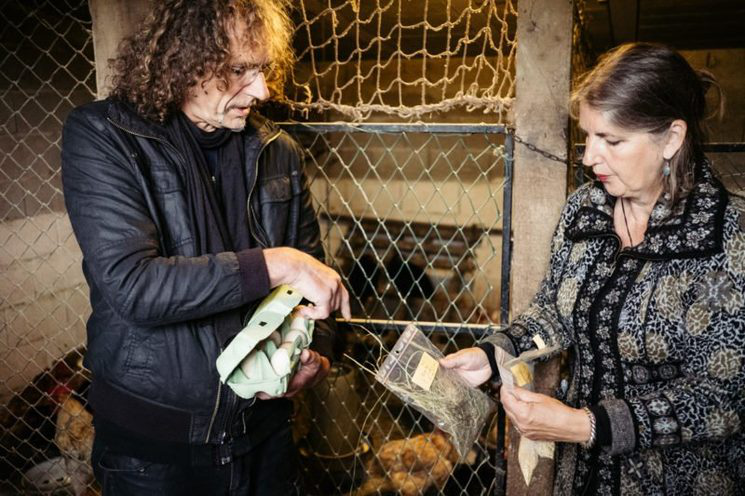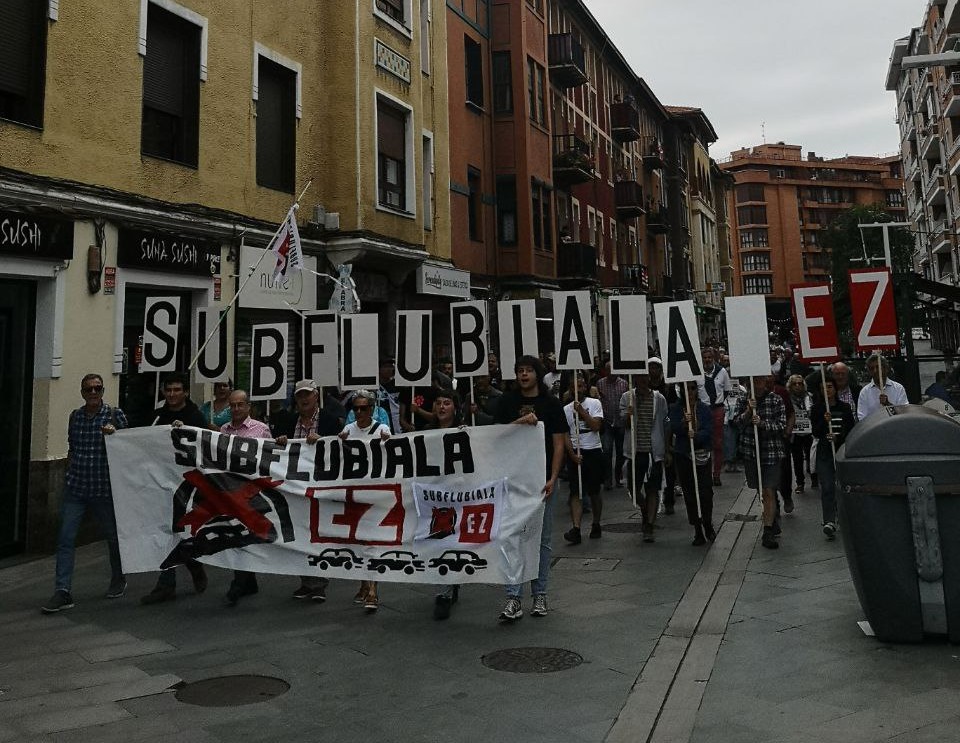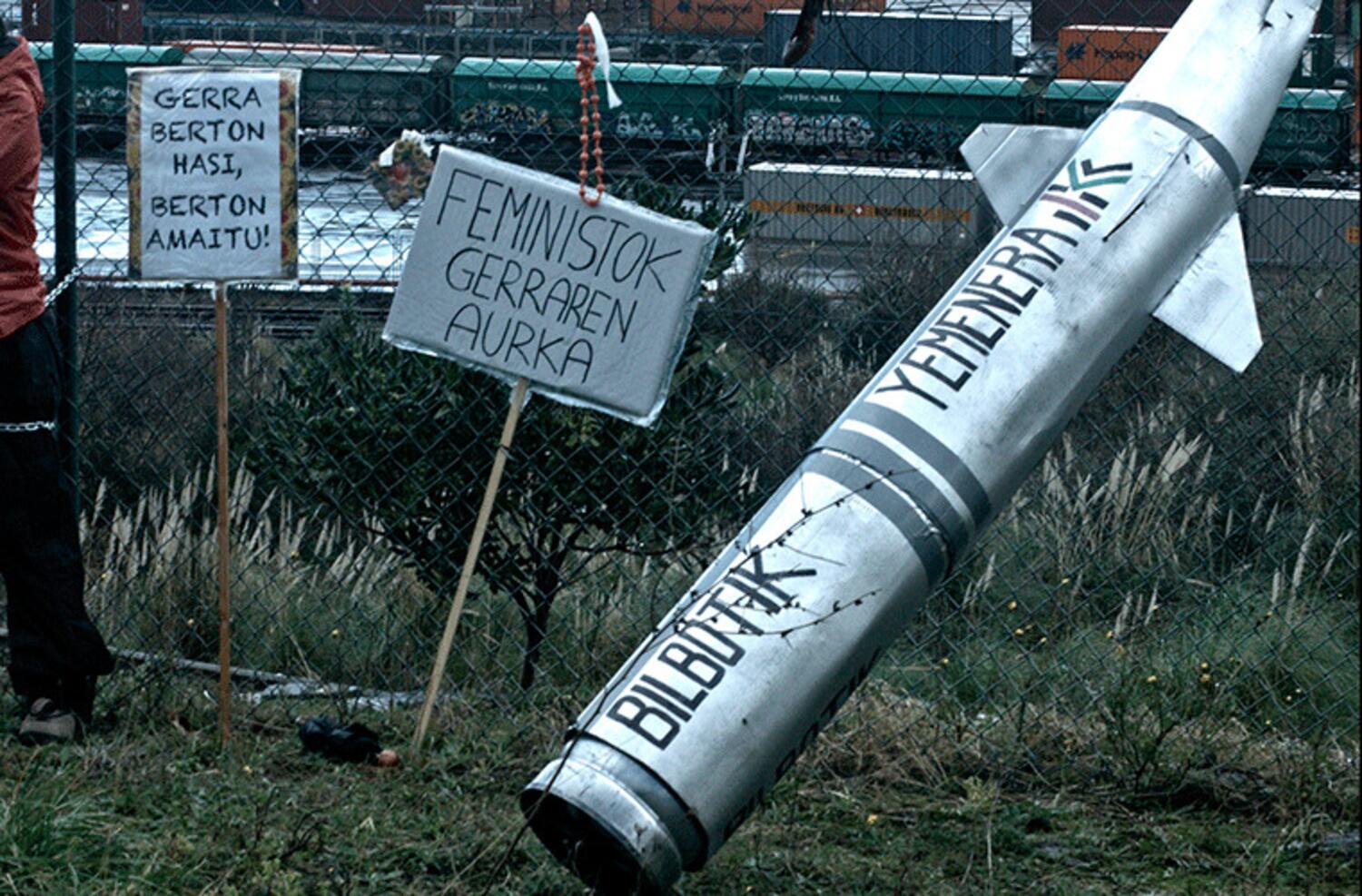The institutions are opening the way for an Italian multinational to cut our beech forests.
- The Italian company Florian intends to install a giant sawmill in the Occitan town of Lannemencontran. If this macro-project were to be carried out, forget Zuberoa, Nafarroa Beherea and the forests of Lapurdi and the extensive beech forests. In fact, beech trees from all over the Pyrenees could be exploited to supply the harvest. The major institutions and the most powerful forestry structures gave their approval by means of a letter signed in December 2019. This was discovered by the citizens and elect of the project. Since then, the mobilization against the reform of the law has intensified.
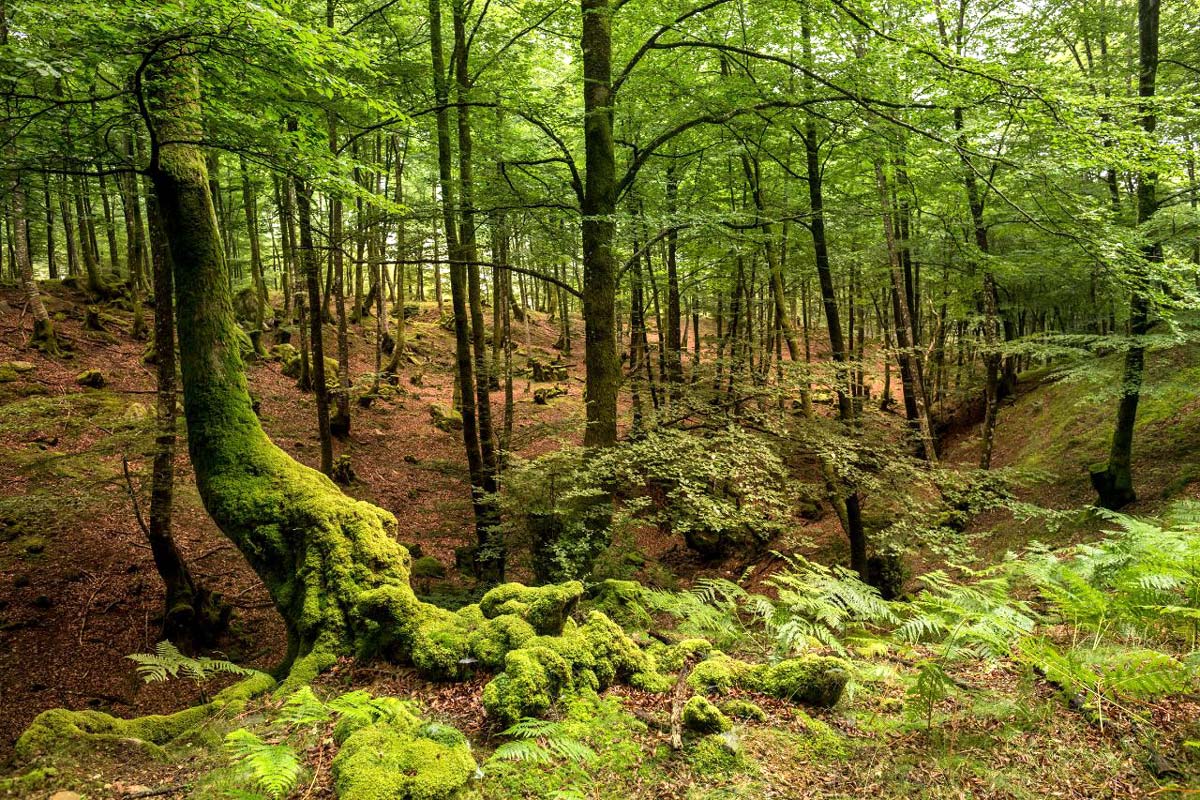
The Italian multinational, Florian, looks at the Pyrenean hayedos with extreme hunger and, if we open the way, we would have our forests completely transfigured and devastated. In particular, the multinational intends to open an industrial sawmill in the city of Lannemencontran (Occitania), and in order to meet the figures presented, the entire mountain range would be exploited – 40% of the cuts would be in Bearn and the Northern Basque Country. Moreover, if it could not accumulate all the amount in the Pyrenees, the cutting of trees could also be directed to the central massif of France, according to the presentation report of the project. The main problem is that, thanks to its discreet delivery work for two or three years, it has achieved the recognition and funding of the main institutions: the French State, the Occitania Region, the city of Lannemenberg and the Urban Community.
Pascal Lachaud Capvern, Submayor of the Occitan village, tells ARGIA how he discovered Florian’s macro-project at a public school meeting in December 2019: “They presented us unilaterally, without any kind of concertation or negotiation.” With the aim of developing economic development, the Lannemencontran People's Community located the project of the Italian multinational in order to investigate new ways of exploiting the Hayedos. “The company has been in contact with the institutions for two or three years. It is quite rare to realize that as an electorate it is linked to the project, but without any kind of concertation”, he adds, regrets.
The Italian multinational has an important document at its disposal: Letter signed by twelve structures on 16 December 2019, in which they are clearly granted their consent and assistance. Among the signatories are the Public College of Lannemran, the prefectures, the Lannemran City Council and the Regional Council of New Occitania, as well as forestry structures – the French public structure managing the ONF forestry industry, the Fibois Occitania forest interbranch, the private owners association of Alliance Fôret Bois – and other areas. Since without the guarantee that the company Florian would not go, the letter details a number of commitments in order to be able to do so.
By reading this document, we note that the multinational has secured the elements of union of the whole head from the very beginning. Firstly, the number of beech trees in demand: the ONF structure is committed to allocating 20,000 m3 of wood per year, the inter-municipal structure Union Grand Sud, which for five years will transport 45,000 m3 per year, and the Alliance Forêts Bois assures it 5,000 m3 per year – always well defined, the supply will be of “quality demanded”. Both the Council of Occitania and the French State are committed to financing the various investigations.
The cost of processing the trap would be EUR 11 million and, according to the institutional commitments, 60% would be financed by public money. The machinery would come from the company Florian, but the construction of land, works, buildings and new access roads to the herds would be carried out by public institutions. “Unacceptable” to the opposites. The signatories of the Charter undertake, even insufficiently, to: “–Commitment to engage in consultation with the public and with environmental associations, with a view to approving the project”.
The green electorate Jean-François Blanco, from the Aquitaine region, says that if for the time being the forests of Hego Euskal Herria have not been seen, the “danger” is there: “To do so, the company would need the agreement of the owners... But seeing how much wood you’re going to need, it’s obvious that you’re going to want to spread as much as possible.”
For fifteen years, I would like to sew 50,000 m3 a year; and to follow the official data, so that you can find the beetles you have spotted, you would have to cut 250,000 m3 a year – according to the ecologists’ estimates, between 400,000 and 550,000 m3. Specifically, for a cubic meter that goes to the sawmill, they should be cut between seven and eleven cubic meters. The structure of SOS Forêt Pyrenées is making a clear comparison to represent the mismatch: each year it would cut the range of 1,200 football fields.
An “Ekozidio” that, from an environmental point of view, is even more unacceptable in the context of the climate emergency. The Italian company would cut between two and three times more than is currently being cut. “Responding to the number of woods required by the harvest at Floria means that we quickly destroy the Prinian herds, severely damaging biodiversity; and also hitting the forest sector so far,” says Pascal Lachaud, spokesman for the collective Touche à ma forêt or Ene oihana hunki.
The Touche pas à ma forêt group was formed as soon as the macro-project became known, and in February last year it was formed by citizens, structures and elected officials. It brings together over forty structures – trade unions, human rights and environmental associations, political parties – and more than 600 citizens. Public assemblies are held to publicize a project so far which has been discreetly linked in the offices of the institutions. If the possibility of knowing the macro-project is given, it is clear that the citizen wants to be informed. Proof of this is that at the first public meeting held in June last year some 350 people approached and in subsequent meetings they met in large numbers. In addition to reporting, the collective is also under popular pressure. 1,300 people demonstrated last October in Lannemenburg, where there were as many others on five different marches on the Pyrenees the day before. Furthermore, 61,000 Basque citizens have subscribed to a petition against industrial security.
"We have to be clear that even if the entourage is located in Lannemenberg, they have all the forests of the
Pyrenees exploited" Jean-Francois Blanco
(ecologist elect)
Following the calculations of the public structure ONF, 45% of what was consulted is not directly available, that is, roads should be built – with public money – further increasing the ecological and economic cost. In the areas of Euskal Herria and Bearn the jungle and Ramuntxo Teletxea, member of the SNUPFEN trade union, is clear: “We will not be able to meet the request of the company Florian.” Because, in addition to quantity, the quality you demand is impossible. The multinational has observed “thick logs of good quality”. “It has been 30 years since the priority was to cut the thick logs of public forests, and so most of them are gathered together.”
“Instead of annoying the thick logs of the Florian group, following the good sense, we should leave them in the jungle, in the pusan, letting them die naturally, to decompose themselves in the forest. Otherwise, the forests would continue to impoverish, further deteriorate their ecological functioning and diminish their economic capital”, according to the collective. Of the same opinion is Teletxea: “We need old trees for the balance of the forest ecosystem.” Dionaz, thanks to beech women over 130 years old, “we have enormous wealth” in our forests, but also “very fragile”. That’s why it’s “essential” to keep old trees alive to ensure a healthy ecosystem.
Start collecting opinions
Thanks to the mobilization, the Prefecture of Altos Pirineos approved in November last year to begin an opinion collection on the conflict. The project holders, municipalities, institutions, associations, citizens... have begun to reflect on all agents who might be excited about sawmill. The elected militant member Lachaud, who has just heard from the president of the Council of Occitania, has determined a moratorium on the road to this process. Furthermore, as has been demanded, the group is also part of the monitoring committee of the survey, so that progress can be monitored closely.
However, they do not have to leave the mobilization: “We will be mobilized until the project is suspended.” In this regard, the protests of the next six months were agreed at the meeting held in January. On 14 February they will meet in Capitole Square in Toulouse and, after a protest every month, on 5 and 6 June, they will celebrate the Jungle Festival in a forest of the Pyrenees.
Most of the voters were unaware of the project.
However, despite the fact that the institutions have committed themselves to implementation, the elected officials of these communities have not been informed. It is enough to talk to the electorate in Lapurdi, Nafarroa Beherea and Zuberoa to realise that the project has not been discussed. The Mayor of Urepel, Xole Aire, has specified that the project has not been submitted in the Commonwealth of Iparralde. However, it was one of the issues that was taken into account at the last meeting among the electorate in the Garazi-Baigorri area. Representatives of the Sugarai project, which works to produce energy with wood, presented their project. “They want to set up a small sugarai for Euskal Herria so that the jungle stays in our hands. We, for example, would welcome such a project for the Urepel Valley.” If it was not clearly pronounced against the multinational, the strategy for locally managed selviculture was imposed at the meeting.
Today, around a hundred elects have opted against, signing the Mountain Electorate Charter; and at the moment, some thirty collectivities have voted against. Among them is the mayor of Maule Louis Labadot, who in September helped organize an information session in the village house. “Knowing that there are 1,600 people in the Basque Country, it’s not much. That is why informative work is essential, as all the elements are clearly against the elected ones.” The members of the collective Touche pas à ma forêt want to inform the citizens and elected officials of Lapurdi, Baja Navarra and Zuberoa, since if the segeria is not the one located in Euskal Herria, Euskal Herria would be directly affected.
Blanco is against the Errotik project and states that the elected officials have “an enormous responsibility”: if they oppose, they would not do so. “We have to be clear that, even if the scythe is located in Lannemenburg, we will all be affected because they will exploit all the forests of the Pyrenees.” It puts at the forefront the elects of the Socialist Party, who are in power in the Region of Occitania and in the city of Lannemenburg, and who have so far been on the opposite side: “It will be decisive in the position of the Socialists. If it were clearly stated that they were opposed to this, Florian would not be able to carry out the plan. Socialists have a great responsibility in their hands.” The issue should shake up the campaign of the regional elections to be held in June, becoming an inescapable element for the agreement between the two rounds. At least the green party Europe Ecologie Berdeak for the Aquitaine Council will not accept any alliance with the Socialist Party, as long as the latter does not make a clear statement against the closure. This has been assured by the environmental MEP Argia, elected by the left Abertzale Blanco.
The institutional commitments are even more surprising when we see that the objective is not met. All this, in exchange for some 25 jobs committed by the company and other fabric derived from forestry activity: collateral damage, a hundred jobs are of little weight. “Seeing the risks and uncertainties about the supply of beech, if the company decided to leave, we would have in the hands of the collectivities an unused industrial estate. In case of failure, collateral damage would be borne mainly by the citizenry”, it can be read in the document published by SOS Fôret Pyrénées.
Although they are opposed to this macro-project, they are not in themselves opposed to the development of forestry activity.
For economic development
Much of the Pyrenean economy concentrates on the economic activity that the forest has as a working tool and is essential for people to live in it. Thus, alternative projects are being considered. For example, the Mountain Select Charter reads as follows: “Mendiarte’s citizenship needs a clear relocation of employment that responds to local needs; that goes through the field of wood, we need to strengthen and redefine the use of this matter to end the ‘oro-plastic’ logic.” Faced with Florian’s project, they urge the institutions to start a “shared reflection” on the alternatives, “so that a project can be agreed that achieves a balance between ecological, social and economic aspirations”.
“In the end, the question is: What kind of forests do we want for our children? The forest is not unlimited, we have to end this industrial model”
Ramuntxo Teletxea
(Oihanzaina)
Today, the Pyrenees are full of small and medium-sized sawmills in operation, and despite the difficulties, especially because they depend on a globalised market, the jungle is moving forward. The arrival of the industrial harvest would put small businesses in difficulty, which would have a minimum weight compared to the multinational. “It’s the usual thing: they present the project to us as job creators, but they would actually destroy jobs, because small businesses couldn’t survive,” Blanco said.
Project associated with the destination of a biomass plant
It is precisely in 2019 that the company Bois Energie de Lannemhalla received the authorization of a new project from the Ministry of the Ecological Transition of France. In particular, they welcome the project for a biomass plant, which would involve an investment of EUR 9 million, emphasising that it is in line with the philosophy of sustainable development. This company aims to take advantage of the wood that cannot be used and the sawmills’ rubbish to produce energy. It would need 30,000 tons of wood a year to produce electricity and heat. This is also another macro-project.
The opponents of the Italian multinational project claim that the objectives of the biomass plant and that of the industrial harvest are interrelated: for their quality or for their greatness, they could lead to the inadequate wood plant, with complete peace of mind. In addition, the company Energies Services Lannemhalla, chaired by the Mayor of Lannemencontran, Bernard Plano, is one of the shareholders of the company that has presented the object of the plant. “The exploitation of wood can have a secure future, because when we devote it to the construction and production of steel we stockpile carbon; however, we must be careful with energy production: we can channel the residual sands, but not the raw wood, also because biomass is a carbon emitter,” explains Lachaud.
Of the same opinion is Teletxea: “Biomass can be interesting if it’s small-scale and locally; but this central biomass is not suitable, because it requires a lot of energy for the whole machinery to work and, ultimately, the usual one: it would eat a lot of wood to produce little energy.” Experts and scientists have also warned on several occasions: The Scientific Commission of the European Environment Agency has warned that the use of biofuels can increase carbon emissions; and the Intergovernmental Panel on Climate Change (IPCC) also warns that biomass is not carbon neutral.
The fact is that this forest management is among the guidelines set by the French Government for the years 2016-2026, focused on the massive and industrial logging of trees. The operating objective of 12 million cubic metres is set by decree, with a view to allocating them to energy production. Ecologists are clear about this: “The intensive and uninterrupted exploitation of forests by bioenergy will never be able to regain its carbon deposit status.”
In this way, although biomass is an interesting source of energy, its industrial organization causes more damage than benefits. Forests must be left alive, aged, because they are essential both for the healing of the ecosystem and for the fight against the climate emergency. “We have allies in the fight against global warming, we need old forests, and we are lucky, seeing the wealth we have in the Pyrenees,” says Blanco. Also the Teletxea forest guard, which has a working space and an instrument for years, says, thoughtful: “We have to take care of the forests. In the end, the question is: What kind of forests do we want for our children? The authorities believe that they can completely dominate nature, but it is not true. They think that the forest may seem incessant, but we, who are in the forests, know that it can only give what it has, that the forest is not unlimited. We have to put an end to these industrial models.”
Lehengai anitzekin papera egitea dute urteroko erronka Tolosako Lanbide Heziketako Paper Eskolako ikasleek: platano azalekin, orburuekin, lastoarekin, iratzearekin nahiz bakero zaharrekin egin dituzte probak azken urteotan. Aurtengoan, pilota eskoletan kiloka pilatzen den... [+]
Today’s Venice is built on an archipelago of 118 islands. These islands are connected by 455 bridges. The city is based on mud rather than Lura. Millions of trees in the area were cut down from the 9th century onwards to build piles and cement the city. Years have passed and... [+]









